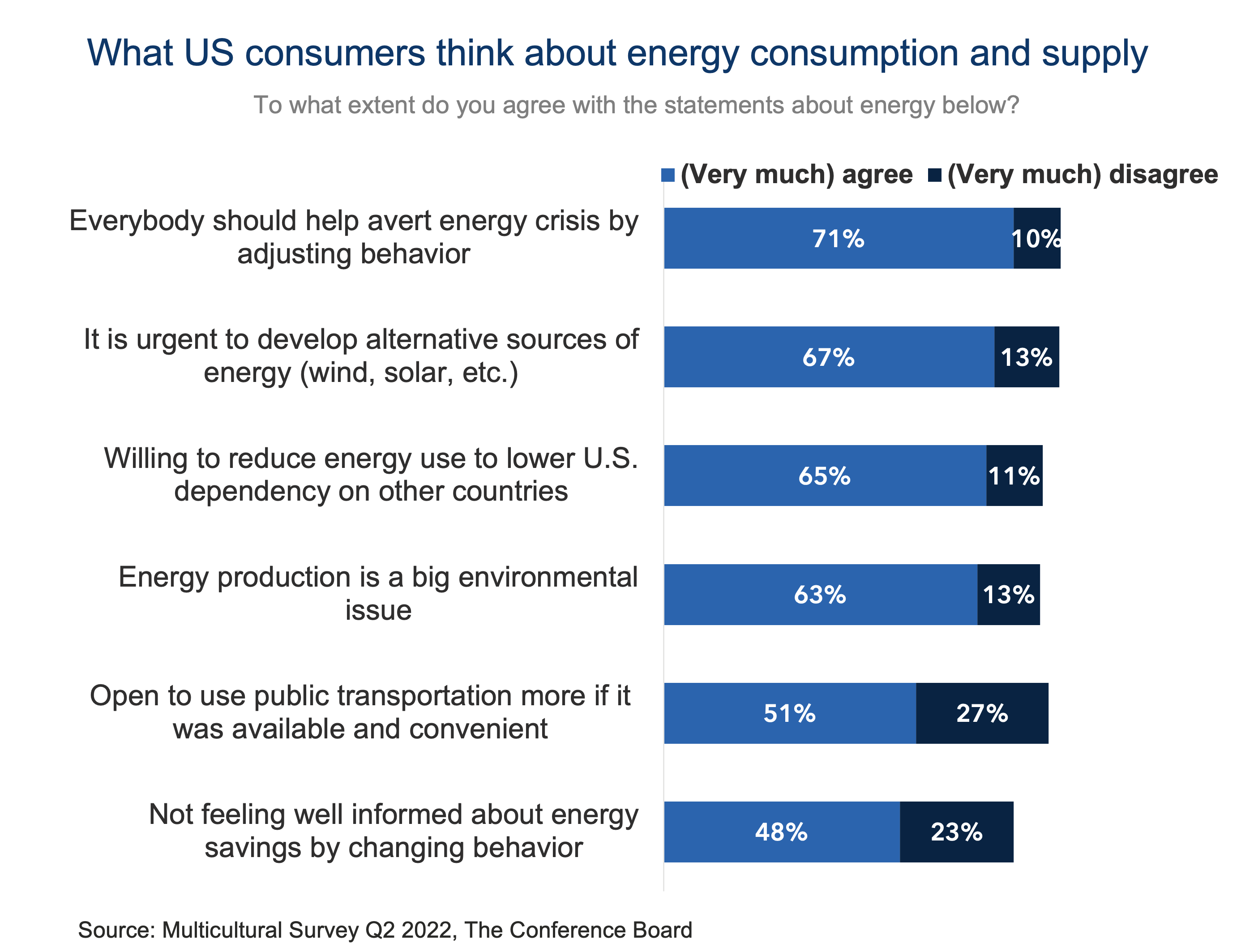
September 26, 2022 | Article
Skyrocketing energy costs worldwide; an energy shortage, especially in Europe, caused by the continent’s efforts to wean itself off Russian energy in response to Russia’s attack on Ukraine; and a worsening global climate crisis have put the spotlight on saving energy and a transition to clean energy.
Our research with US consumers finds that Americans overwhelmingly agree that a change in one’s personal energy consumption is needed to avert an energy crisis. Two-thirds are willing to reduce their energy use to lower the US’ dependency on other countries. However, about half of Americans feel underinformed as to how to save energy.

This implies the need for broad-based energy education of the US public, including on how to save energy and the potential associated money savings. This doesn’t just have to be the task of the traditional “energy educators” such as utility companies, the government, and environmental organizations. Instead, businesses can serve as role models for prudent energy use through their own behaviors and operations while educating customers and employees. Moreover, school boards might want to consider more focus on energy efficiency and sustainability topics in their curricula.
Helping consumers save energy could make them feel more in control of their expenses on essentials, and thus feel more positive. Plus, the money saved on essentials can free up the budget for discretionary categories.
Read more insights from this research here: US Consumers' Attitudes About Energy Consumption and Energy Sources.
